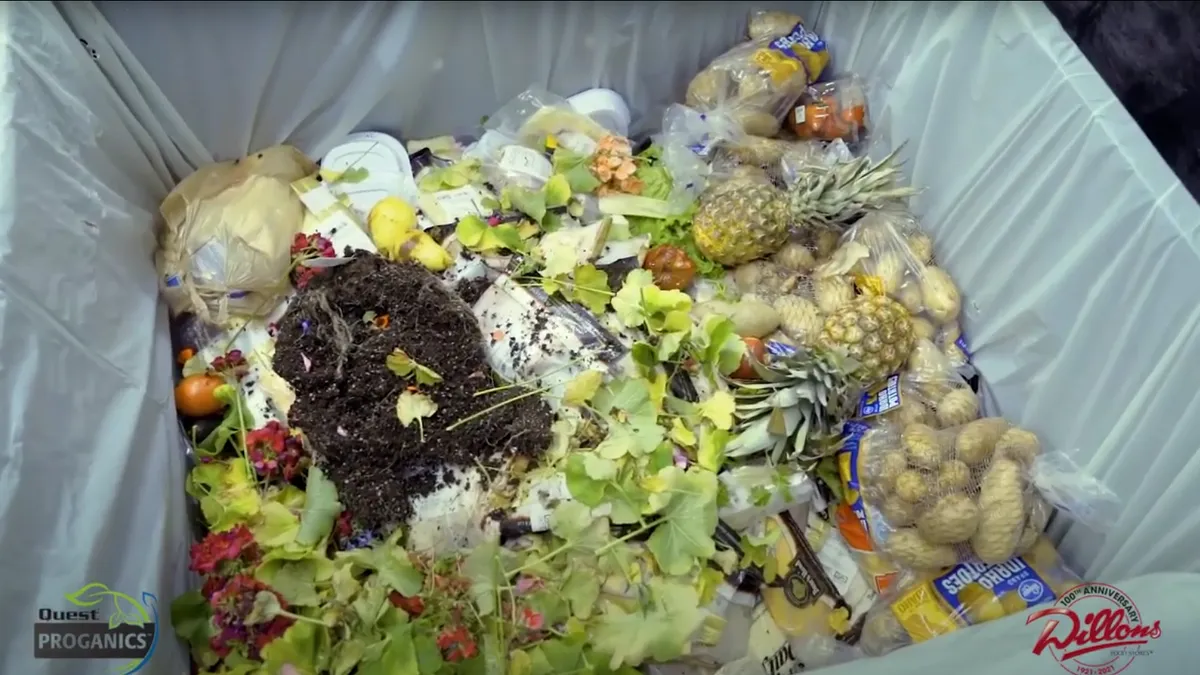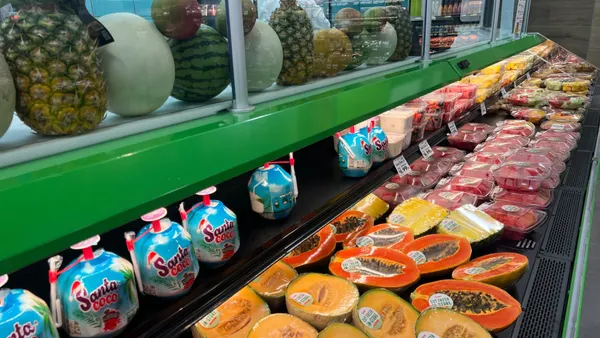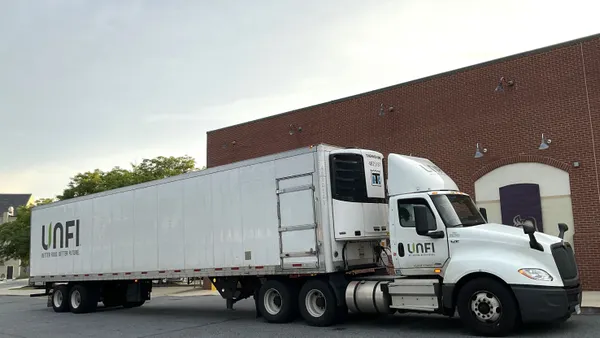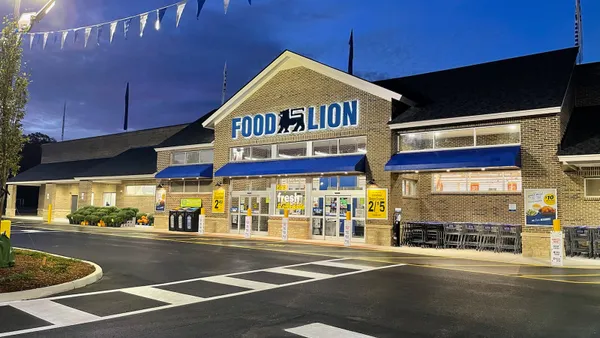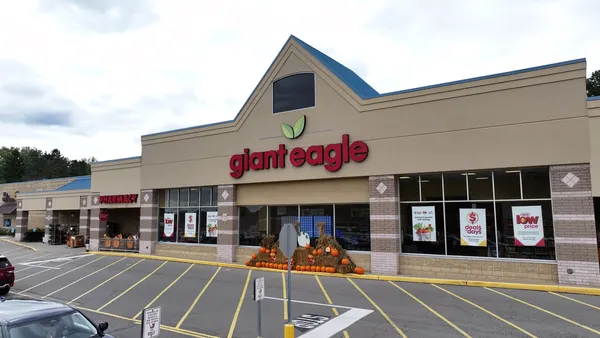When officials at the Dillons supermarket chain decided to mark Earth Day this year by offering people free compost made from food waste outside of a store in Topeka, Kansas, they attracted a crowd hungry for the nutrient-rich soil — and provided a window into the Kroger-owned grocer's broad effort to make its operations more sustainable.
The compost giveaway was one of two events Dillons held in April in connection with its partnership with Quest, a recycling company that has been working with the Kroger banner for more than a year to refine a proprietary method for keeping spoiled food from winding up in landfills. Quest recently began publicizing the technique, which it calls Proganics, and has started marketing it to other supermarket chains.
Proganics lets retailers keep a higher percentage of the waste they generate out of landfills than other recycling techniques because it can turn virtually any kind of organic material, including food, floral items, cardboard and paper products, into compost, biofuel or animal feed, said S. Ray Hatch, Quest's president and CEO. The technique can also be used to process plastics and waxed cardboard used in food packaging, Hatch said.
Retailers can also use the process in place of a separate meat-rendering process to deal with animal products, helping to save money, said Leigh Harrington, Quest's vice president of marketing.
Quest's technique can keep 60% to 70% of all waste a supermarket produces from winding up in a dump, compared with 20% to 30% for other techniques, according to Hatch. "The benefit is that you can more than double the tonnage you're generating that [stays away] from a landfill," he said.
Hatch would not provide specifics about how the company's recycling process works, but said it is based on a centralized system that allows retailers to put their organic waste into compostable bags and ship it in specialized containers, which contain odors and keep the rotting material from leaking.
It takes about six weeks for waste to be converted into soil, according to a video about the Kansas compost-distribution event released in April by Dillons and Quest.
While Quest developed and runs the Proganics process under contract to retailers, it works with contractors of its own to collect organic material, transport it to recycling facilities and repurpose it, Hatch said.
Grocery Dive sent questions to a Dillons spokesperson about the retailer's goals and involvement in the program, but did not receive answers by press time.
The broader effort to curb waste
According to a video posted by Dillons, the grocer's partnership with Quest is part of Kroger's Zero Hunger Zero Waste sustainability initiative, which aims to eliminate food waste by 2025 "through prevention, donation and diversion efforts in all stores and across Kroger." Other efforts under the program include phasing out single-use plastic bags and donating food to local charities.
Other large retailers, like Walmart, Target and Ahold Delhaize, are also engaged in high-profile efforts to increase the sustainability of their operations.
In addition to having consequences for the environment, food waste is a multibillion-dollar liability for grocers. According to a report from the nonprofit organization Refed, food waste costs retailers more than $18 billion annually.
In September, more than 200 major food suppliers, manufacturers and retailers signed on to the 10x20x30 initiative, which is striving to cut food waste in half by 2030.
Beyond looking for ways to improve how they handle food waste, grocers are also implementing methods to reduce the amount of food that winds up unusable in the first place. For example, Midwestern superstore operator Meijer is planning to roll out Flashfood, an app that offers customers nearly expired products at discounted prices, chainwide by the end of 2021.
In addition, companies like Shelf Engine offer technology that helps retailers predict how much food they are likely to sell before ordering items from retailers.
Retailers are also looking for food that lasts longer in their stores. For example, Kroger announced in March that it was expanding its partnership with indoor farm operator 80 Acres Farms, which uses growing techniques that it says increase shelf life. 80 Acres Farms is supplying fresh produce to more than 300 supermarkets in Indiana, Kentucky and Ohio through the arrangement.
Hatch said Quest is hoping to sign up more grocers to use its recycling process by the end of 2021. He noted that the process is better-suited to grocers that operate multiple locations than it is to smaller retailers.
"We really don't have a minimum, but the larger [retailers] where we can bring a solution across the board is usually where we have the most value," Hatch said.



